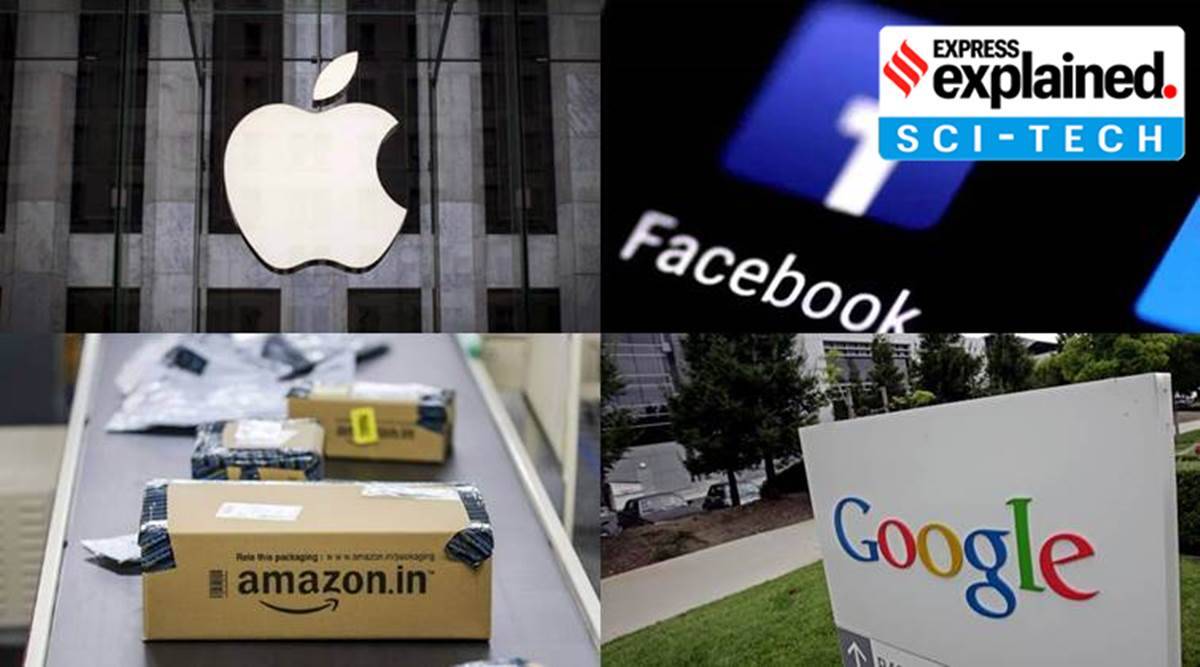Description

Copyright infringement is not intended
Context: The European Union (EU) finalised details of its Digital Markets Acts (DMA).
- This new legislation could dramatically change the way big tech firms such as Apple, Google, Meta, and Amazon operate in Europe, and have ramifications for the rest of the world as well.
- The law aimed to make the “digital sector fairer and more competitive”.
Who are the targets of the Digital Markets Acts?
- It focus on companies like Apple, Facebook, Google, etc. as gatekeepers as they have to comply with the new rules.
- Gatekeepers company:
- The law refers to these companies as gatekeepers as they often control distribution, whether it is for apps or ads on the platform, or even communication.
- Gatekeepers may have a dual role as developers of operating systems and device manufacturers.
- A company will be termed as a gatekeeper if it has an annual turnover of at least €7.5 billion within the EU in the past three years, or a market valuation of at least €75 billion.
- Any player with over 45 million monthly end-users, and at least 10,000 business users established in the EU, also qualifies as a gatekeeper.
- Small and medium enterprises are exempt from being identified as gatekeepers.
- ‘Emerging gatekeeper’: A category of ‘emerging gatekeeper’ has been identified, aimed at “companies whose competitive position is proven but not yet sustainable”.
- Violation: Violators can be fined up to 10 per cent of the company’s global annual sales for an initial breach of the law, rising to 20 per cent for repeated infringements.
- In worst case scenarios, they could even be banned from any further acquisitions.
- Core Platform:
- It will be “limited to a number of ‘core platform services’ where the identified problems are most evident and prominent”.
- The platform must also control one or more core platform services in at least three EU states.
- These services include marketplaces and app stores, search engines, social networking, cloud services, advertising services, voice assistants, and web browsers.
What are the DMA’s proposals?
- It states that users will have the right to choose and install their apps.
- They also crack down on pre-installed apps, common in Apple, Google and others.
- Users will not be forced to use software by default when installing the OS, and mentions web browsers. So, future iPhones might not come with Safari, or even iMessage or Siri, pre-loaded.
- Interoperability: EU wants “interoperability” between the basic functionalities of messaging services. This could mean that a user on WhatsApp and one on iMessage should be able to talk to each other.
- The rules call for fair access conditions to app stores owned by the gatekeepers. The gatekeepers must “allow the installation and effective use of third party software applications or software application stores”, even while they can take “proportionate measures” for security.
- The EU wants app developers to get fair access to supplementary functionalities of smartphones, for example the Near Field Communications chip.
Liabilities for Gatekeepers:
- It cannot establish unfair conditions for business users or require app developers to use certain services in order to be listed in app stores.
- Gatekeepers will have to give sellers access to their marketing or ad performance data on the platform.
- Gatekeepers will have to inform the European Commission of their acquisitions and mergers as big players tend to buy out some of their upcoming competition.
- The new rules also forbid the gatekeepers from ranking their own products or services higher than others, and from reusing private data collected during a service for the purposes of another service.
Why do these new rules matter?
- The new rules come at a time when big tech is under immense scrutiny.
- This can act as a first set of steps to “rectify” core problems that plaguing the industry. Problem like issue of in-app payments, third-party app stores, fairness in ranking, and pre-loaded apps have been raised across the world.
- Once the EU’s new rules come into effect, they could set an important legal precedent for other countries to follow.
Scenario in other countries:
- South Korea, a law was passed, which specifically banned Apple and Google from forcing developers to use their own in-app payments system.
- US is deliberating on these questions.
- India, app developers have raised the issue of control, in-app payments, and third-party app stores.
https://indianexpress.com/article/explained/european-union-digital-markets-acts-big-tech-firms-explained-7836692/









